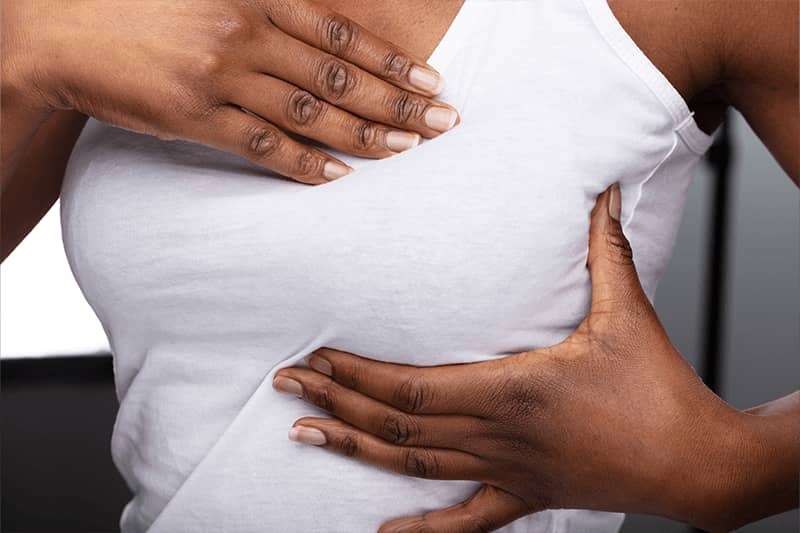By Sola Ogundipe
In a medical breakthrough that could transform breast cancer care, scientists at the University of Pennsylvania have shown it’s possible to detect and destroy the “sleeper” cells that cause the disease to return years after treatment.
In a landmark clinical trial, researchers used existing, repurposed drugs to eliminate these hidden cells in most breast cancer survivors, pushing survival rates above 90 per cent. The findings, published in Nature Medicine, offer the strongest proof yet that breast cancer recurrence may no longer be inevitable.
The principal investigator, Dr Angela DeMichele of Penn’s Perelman School of Medicine, said, “The lingering fear of cancer returning is something that haunts many breast cancer survivors. Our study shows that by targeting dormant tumour cells, we can prevent recurrence—and give survivors a real chance at a lasting cure.
“This changes the game. We finally have a proactive strategy—not just waiting for cancer to come back, but stopping it before it does,” DeMichele said.
The trial, known as CLEVER, enrolled 51 breast cancer survivors who had completed treatment but still harboured microscopic traces of dormant tumour cells, also called minimal residual disease (MRD). Standard scans cannot detect these cells, which can “wake up” years later and fuel incurable metastatic cancer.
Patients received either one or two study drugs, both already FDA-approved for other conditions. The results stunned researchers. Dormant tumour cells were cleared in 80 per cent of participants, and the three-year survival without recurrence exceeded 90 per cent for patients on single therapy and reached 100 per cent for those on combination therapy.
Further, only two patients have relapsed after more than three years of follow-up.
“This sleeper phase is the window where cancer is most vulnerable. explained senior author Dr Lewis Chodosh, chair of Cancer Biology at Penn. Surprisingly, drugs that don’t work against active tumours can be highly effective against dormant cells. That’s the key—we’re hitting cancer while it’s asleep,” explained senior author Dr Lewis Chodosh, chair of Cancer Biology at Penn. The trial builds on decades of Penn research uncovering how dormant breast cancer cells survive in the body, sometimes for decades, and what biological pathways sustain them. By targeting autophagy and mTOR signalling—mechanisms that help the sleeper cells persist—the researchers found a way to wipe them out before they reactivate.
The implications are profound. Until now, breast cancer survivors at risk of recurrence had little more than “watch and wait”. For the 30 per cent of patients whose cancer returns, the disease has been incurable.
The Penn team is now preparing larger clinical trials to confirm the results and explore whether this approach can be applied to other cancers with similar dormant-cell behaviour.
For millions of breast cancer survivors worldwide, the research opens the door to a future where remission means freedom—not fear.
Delayed breakfast linked to early death for elderly
How late you eat breakfast could be more important than you think. A major new study has revealed that older adults who push their first meal of the day to later hours face a higher risk of illness and even early death.
The research, published in Communications Medicine by scientists at Mass General Brigham and collaborators in Turkey, tracked nearly 3,000 people in the UK for more than two decades. The results were clear: as people age, breakfast and dinner times creep later, but those who delay breakfast are more likely to suffer from depression, fatigue, poor sleep, and declining health, and they die sooner. “Breakfast timing may be an easy-to-monitor marker of health in older adults,” said lead researcher Hassan Dashti, PhD, RD, of Massachusetts General Hospital. “Our findings show that late breakfasts are tied not only to health challenges but also to higher mortality. This gives fresh meaning to the saying that breakfast is the most important meal of the day.”
The team found that people genetically inclined to be “night owls” also tended to eat later, compounding risks as they aged. Meanwhile, those who stuck to consistent and earlier meal routines showed signs of healthier ageing and greater longevity.
The findings could spark a rethink of popular diet trends such as intermittent fasting, which often encourages delaying the first meal. While the approach may benefit younger adults, the study suggests it could be harmful for seniors.
For doctors, families, and carers, the message is simple: watch the clock. A later breakfast may be more than just a habit – it could be a warning sign.
The post Scientists find proof that breast cancer recurrence can be eliminated appeared first on Vanguard News.

